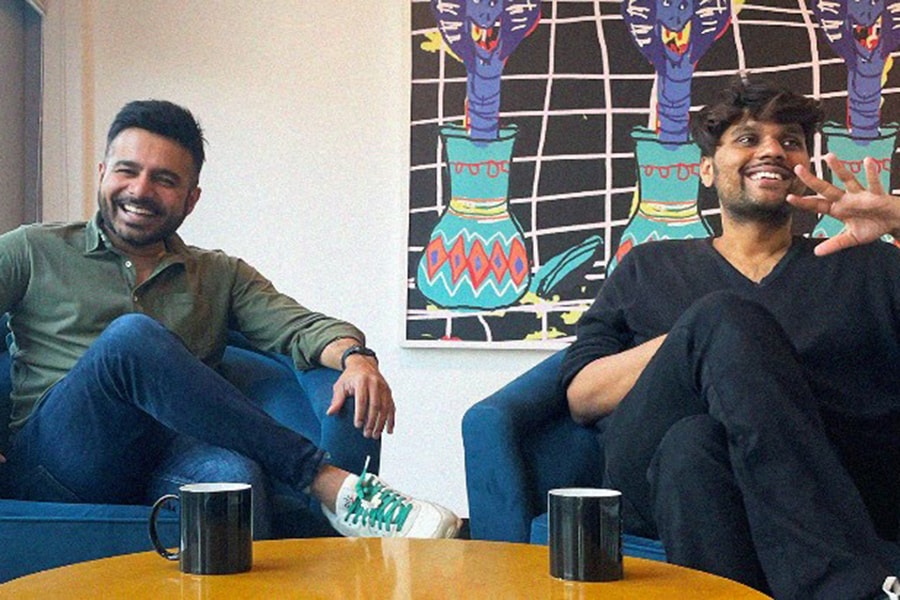
The world doesn't need another advertising agency: Reghunath and Aditiya of Talented
In their first interview since leaving the Dentsu group and starting up with Talented, Gautam Reghunath and PG Aditiya tell Storyboard18 how they are building a modern creative shop with a people-first approach
 Gautam Reghunath and PG Aditiya of Talented. Image: Talented
Gautam Reghunath and PG Aditiya of Talented. Image: Talented
In October 2021, when Dentsu Webchutney's CEO Gautam Reghunath and CCO PG Aditiya quit, it surprised many in the industry. The duo exited at a time when Dentsu International India was going through a leadership shakeup amidst major restructuring with a slew of exits at the top and mid-level. However, Reghunath and Aditiya clarified to Storyboard 18 that they left the legacy ad company to chase their personal ambitions and for no other reasons. They moved on to reset the advertising culture and the agency business. With their new creative shop, Talented, they want to keep people at the core of the business, take a startup approach, and focus on being a pure-creative agency. Read on to know more about how Reghunath and Aditiya are building a modern agency. Edited excerpts.
Q. To begin with, why did the two of you decide to go independent?
Reghunath: Well, going independent was an easy decision for us. Leaving Webchutney was the tougher one. Personally, I’ve always loved startup energy, hanging around my founder friends and the general optimism of it all. I'm also second-generation advertising by the way. It has always been a huge part of my life. My father’s been doing this for 35 years. Growing up, I’ve always had ad magazines, creatives and proofs lying around the house and that sort of thing. So I absolutely love the agency business.
And now with PG, who is an absolute ad nerd, it just feels very right. We’ve both secretly harboured ambitions as to what our own creative shop would look like. And like we’ve said before, the world certainly doesn’t need another advertising agency. What we believe, it does need is a serious re-imagination of the agency experience—both for clients and particularly for the talent working in advertising. Working in advertising can and must feel better than it does now for a lot of us.
Q. Did it have to do anything with Dentsu's global transformation strategy? Did you both not agree with the new approach?







